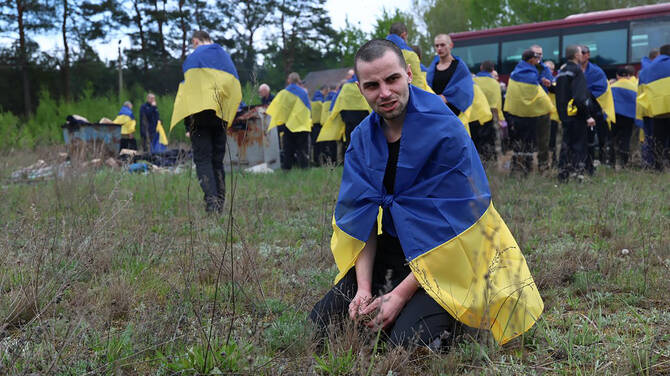BEIRUT: Extremist militias in Lebanon have become part of history, Lebanese Druze leader Walid Jumblatt said on Sunday.
In a statement, the former Progressive Socialist Party leader also said that the situation in Lebanon “has changed due to political and military circumstances, as well as the Israeli aggression.”
He said: “We have also agreed to implement international resolutions.”
Jumblatt added: “No one opposes a political confrontation with Israel, but we have seen where the use of arms led us, despite Hezbollah’s significant sacrifices.”
FASTFACT
Lebanon’s army on Sunday urged residents against going to southern areas where its forces had not finished deploying under an Israel-Hezbollah ceasefire deal, after Israeli gunfire killed a woman.
He added: “We do not want a segment of Lebanese society to be a tool in the hands of Iran. After all these wars, we have the right to see stability prevail.”
Jumblatt’s statement comes in the wake of a decision by Lebanese authorities to suspend Iranian flights to Beirut’s Rafic Hariri International Airport until Feb. 18.
Hossein Pourfarzaneh, head of Iran’s Civil Aviation Authority, said that in light of “security issues” at Beirut airport, all flights to Lebanon have been canceled until Feb. 18 at the earliest.
Social media users on Sunday called for sit-ins on the airport road for the fourth consecutive day despite the Lebanese army’s decision to prevent the closure of public roads.
Troops used tear gas to disperse protesters who blocked the airport road on Saturday after demonstrations escalated into attacks on UNIFIL vehicles, resulting in injuries, and causing widespread outrage both in Lebanon and internationally.
The army command on Sunday said that its intervention during Saturday’s sit-in on the road to Rafic Hariri International Airport was pre-coordinated with the organizers.
Despite agreeing to stage a peaceful demonstration, a group of protesters blocked the road and attacked military personnel assigned to maintain security, the army statement said.
Vehicles were damaged and at least 23 soldiers, including three officers, were injured in the ensuing violence.
The statement added that military units had to intervene to protect personnel and reopen the road.
Lebanon is waiting to complete deployment of its army in areas that Israeli forces are due to vacate by Feb.18.
However, Israel announced it will not remove its troops from five strategic hills along the border.
With 48 hours remaining for the complete withdrawal of Israeli troops, further Israeli military action took place in several border towns, including Kfarshouba.
A woman was killed and several other people wounded on Sunday when Israeli forces fired on a group of residents attempting to return to the border town of Houla.
Five people, including two paramedics, were also arrested after residents tried to cross earth barriers set up by Israeli forces.
Families bypassed the Lebanese army’s positions and tried to enter the town with the aim of “recovering the bodies of their sons” who were affiliated with Hezbollah and were killed during clashes with Israeli forces.
Khadija Hussein Atwi was killed when Israeli troops fired on the group. Her father had been killed during confrontations with Israel.
Lebanon’s army later urged residents to avoid heading to border areas where its forces had not completed deployment.
In a statement, the army command said that “citizens must not go to the southern regions where the army has not completed its deployment and must adhere to the instructions of the deployed military units, to preserve their safety and avoid the fall of innocent people, given the danger of unexploded ordnance left behind by the Israeli enemy, in addition to the possibility of the presence of enemy forces in those areas.”
Prime Minister Nawaf Salam discussed the ceasefire agreement and the withdrawal of the Israeli troops in a phone call with his Qatari counterpart and Qatar’s Foreign Minister Sheikh Mohammed bin Abdulrahman bin Jassim Al-Thani.
The Qatari foreign minister reiterated Qatar’s support for Lebanon, its unity and territorial integrity.
A statement from Qatar’s Foreign Ministry highlighted “the importance of fully adhering to the ceasefire agreement in Lebanon and the withdrawal of the Israeli occupation from the Lebanese territories.”
Israel is committed to the ceasefire, Prime Minister Benjamin Netanyahu said on Sunday.
Speaking at a press conference with US Secretary of State Marco Rubio, Netanyahu said that he expects Lebanon to commit to its role and to disarm Hezbollah.
The US secretary of state said that the Lebanese state “must be strong and able to disarm Hezbollah.”



























